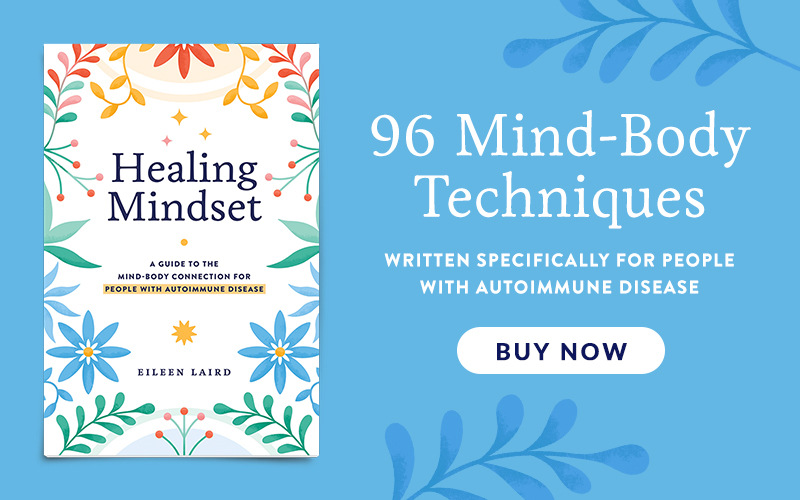
“If you look at healthcare today, it’s all about disease. It’s not about understanding wellness at all.”
~ Leroy Hood
Healthcare for Autoimmune Disease
This website is dedicated to maximizing autoimmune health through nutrition, lifestyle, and mindset. The choices we make every day can truly improve our lives! However, autoimmune disease is a complex medical condition. There will also be times we need help from medical professionals. How do you choose the right healthcare team for you? What do the different titles mean?
Conventional Medicine
This is the most common form of medicine practiced in the United States. It’s also called Allopathic or Western Medicine. The cornerstone of care is medication and surgery. When you go to the doctor’s office or the hospital, this is the type of care given most often.
Pros:
- Conventional medicine can and does save lives. It can also improve quality of life.
- While some pharmaceuticals are overprescribed, others are vital to restore a patient’s health.
- There’s a huge range of specialties within conventional medicine: primary care, pediatrics, cardiology, dermatology, endocrinology, gastroenterology, gynecology, immunology, internal medicine, neurology, ophthalmology, psychiatry, etc.
- Physical therapy is a branch of conventional medicine that offers body-centered therapy beyond pills.
- Mental health services are also part of conventional medicine.
- If you have health insurance, this type of care is usually covered.
Cons:
- Doctors are often overworked and have limited time with patients. Medical appointments may be as brief as 5 minutes with the actual doctor.
- Care tends to focus on symptoms rather than the causes behind those symptoms.
- Care is also driven by what insurance companies will reimburse.
- Lab tests may be seen as more important than patient experience.
- Because there are so many specialties, patients are often treated by body part, rather than being looked at as a whole.
- Conventional medical school training doesn’t focus on nutrition, lifestyle, or mindset. For that reason, patients are rarely counseled on the ways they can impact their own health.
- When someone has chronic illness and conventional medicine doesn’t resolve the problem, they may be discharged anyway because the doctor has nothing else to offer. For this reason, some people feel that conventional medicine has failed them.
Autoimmune Disease Care:
- While conventional medicine isn’t perfect, most people with autoimmune disease would benefit from having a conventional doctor on their team. Some of the doctors who specialize in autoimmune disease include rheumatologists, dermatologists, endocrinologists, gastroenterologists, neurologists, and others.
- Conventional medicine includes tests that help diagnose and monitor disease activity, such as antibodies, inflammation markers, organ function, x-rays, ultrasounds, MRI’s, colonoscopies, etc.
- Prescribed medications can help calm an overactive immune system, relieve pain, reduce inflammation, replace hormones, and address other symptoms of autoimmune disease.
- Emergency medical care is important for anyone with a serious illness. Autoimmune flares can sometimes be debilitating or even life-threatening.
- And while some doctors are burnt out within the constraints of conventional medicine, there are also compassionate, caring doctors who are doing their best to provide excellent care within an imperfect system.
Alternative Medicine
As the name suggests, these are modalities that are considered alternatives to conventional medicine and aren’t typically included in conventional medical care. Specialties can be wide-ranging and include acupuncture, Ayurveda, chiropractic care, energy medicine, herbalism, hypnosis, naturopathy, therapeutic bodywork, and more.
Pros:
- When conventional medical approaches aren’t enough on their own, it’s affirming to know there are so many other ways to seek help.
- These practitioners take their time with you, with appointments averaging 30-90 minutes.
- Burnout is less common in these professions. Practitioners are usually passionate about their healing specialty.
Cons:
- This therapy can be expensive, because it’s usually not covered by insurance. There are exceptions. Chiropractic care and massage therapy are sometimes covered.
- Trial and error is usually part of the alternative medicine experience. It can take time to find a qualified practitioner you trust, as well as the therapy (or therapies) that benefit your unique body.
- Sometimes alternative medicine practitioners will overpromise results. If you meet someone who tells you they can cure autoimmune disease, it will usually be an alternative medical practitioner. As much as we wish otherwise, autoimmune disease cannot be cured. Unethical practitioners will charge thousands of dollars encouraging you to chase an impossible goal.
Autoimmune Disease Care:
- Many people with autoimmune disease swear by these specialties. They have the potential to reduce pain, improve sleep, balance hormones, relieve stress, and alleviate other symptoms of autoimmune disease.
- When alternative therapies are successful, some people are able to reduce their reliance of conventional medications. Note: always work with your doctor when trying to taper medication. It’s more important for you to be healthy than to be medication-free. Don’t compare your results to others. Every body is unique.
- When choosing medical care, it doesn’t have to be an either/or choice. In fact, some conventional hospitals now offer CAM therapies to their patients. CAM is an abbreviation for Complementary and Alternative Medicine.
Functional Medicine
Functional medicine specializes in chronic illness. It picks up where conventional medicine leaves off. It has a root cause approach, seeking the reasons behind your symptoms. Functional medicine can be practiced by both conventional physicians and alternative practitioners.
Pros:
- These practitioners are excellent listeners. Every appointment starts with a detailed health history. While they will also look at tests, the patient experience is considered the most important measure.
- Functional medicine appointments are usually long instead of short. You often get a full hour with the doctor.
- They look at you as a whole person rather than by body part. They’re interested in every system of the body, how those systems interact, and how your life history and current lifestyle impact your whole body health.
- Many of these practitioners have a personal healthcare journey that led them to their profession. For that reason, they usually have deep empathy for their patients.
- When it comes to tests, they’re very thorough. In addition to conventional medical tests, they may also recommend functional medicine tests, such as stool testing, SIBO testing, urine organic acid testing, hormone levels, heavy metal levels, etc.
Cons:
- Many functional medicine practitioners have opted out of the insurance model of medical care. That allows them to spend more time with their patients and offer tests and treatments that aren’t typically covered by insurance. This can make it expensive.
- There’s a wide range of training among functional medicine practitioners. Some have had years of schooling, while others got a certificate after a few months of online education. Check their credentials before making your first appointment.
- While it’s wonderful to have access to tests that might uncover a missing piece to your health, practitioners sometimes over-test and over-treat. You want a practitioner who knows how to prioritize and personalize a treatment plan for you.
Autoimmune Disease Care:
- If you can afford functional medical care from a high-quality practitioner, it can be powerful medicine.
- Resource: How to Find a Good Functional Medicine Practitioner.
Integrative Medicine
These are conventionally trained physicians that have expanded the way they practice medicine. While they still offer conventional tests and treatments, they also offer alternative treatments. Their goal is to bring the best tools from all branches of medicine together.
Pros:
- They bring with them all the positives of a licensed physician. They can prescribe medications and therapies, and provide referrals to other doctors as needed.
- They don’t bring the negatives. They’re not burnt out or rushed. Instead of short appointments, you often get an hour with the doctor.
- They see their patients holistically. Even when they’re specialists like integrative rheumatologists or endocrinologists, they no longer look at their patients as parts. They’re looking at whole person health.
- Whereas conventional doctors rarely discussion nutrition, lifestyle, and mindset with their patients, the opposite is true with an integrative physician. Patient empowerment is a cornerstone of their approach.
Cons:
- Like functional medicine practitioners, they often don’t take medical insurance. So, again, this is expensive care. However, since these are MDs they can often give you receipts that may potentially be reimbursed by your insurance company. Note: this is also true when a functional medicine practitioner is an MD.
Autoimmune Disease Care:
- If you can find an autoimmune specialist MD who has also embraced the idea of integrative medicine, that’s a true gift. You might be able to meet all of your medical needs through one office. In fact, many of these offices have a team of professionals offering a wide variety of alternative and conventional medical care.
- However, even if that’s not true, you can create your own integrated medical team. That’s what I have done. I have a conventional rheumatologist. I also have a nurse practitioner for my primary care. Both help monitor and support my health, and they’re there for me in an emergency. I’ve also consulted with functional medicine practitioners intermittently, as my needs and budget have allowed. However, the foundation of my health comes from my daily life choices (nutrition, lifestyle, and mindset). I’m so grateful for this combination of self-care and medical care.
When You Cannot Afford Alternative, Functional, or Integrative Medicine
Here’s a little bit of honesty. Not everyone can afford medical care beyond conventional medicine. In fact, even conventional medicine might feel out of reach if you don’t have health insurance, or you have high deductibles that are a barrier to use. If that’s you, I don’t want you to feel powerless. While there are no easy answers, here are my best tips.
If you have health insurance:
- Look at your policy to see what types of services are covered. Call your insurance company if you have questions. Then, research the medical services available in your area, and access any that have the potential to help you. Ask for referrals to specialist MD’s as needed, but also request referrals for supportive therapies like physical therapy, occupational therapy, chiropractic care, and psychological counseling (if your insurance covers these therapies). That’s one way to start building an integrative healthcare team around you.
- See if your local hospital has community programming that might be covered by insurance. This might include adaptive fitness classes, medical yoga, patient support groups, and more.
If you don’t have health insurance:
- Research free medical care in your area. This may include a public health department, a community health center, or a private community clinic.
- Also reach out to healthcare practitioners directly to see if they have reduced rates for the uninsured, or if they ever offer pro bono healthcare.
- Any time you hit a dead end and someone says no, ask them to recommend someplace else you can try.
Always remember that the most important person on your healthcare team is you. The choices we make every day matter, and that’s why I created this website, to offer education and tools to help us live our healthiest lives. But at the same time, we all need help sometimes. I know it can be tiring to advocate for yourself. Know that you are worth it! And if you have a friend or family member willing to help, ask them to assist you.
You May Also Be Interested In
Credit: image at top of page purchased from iStock.









